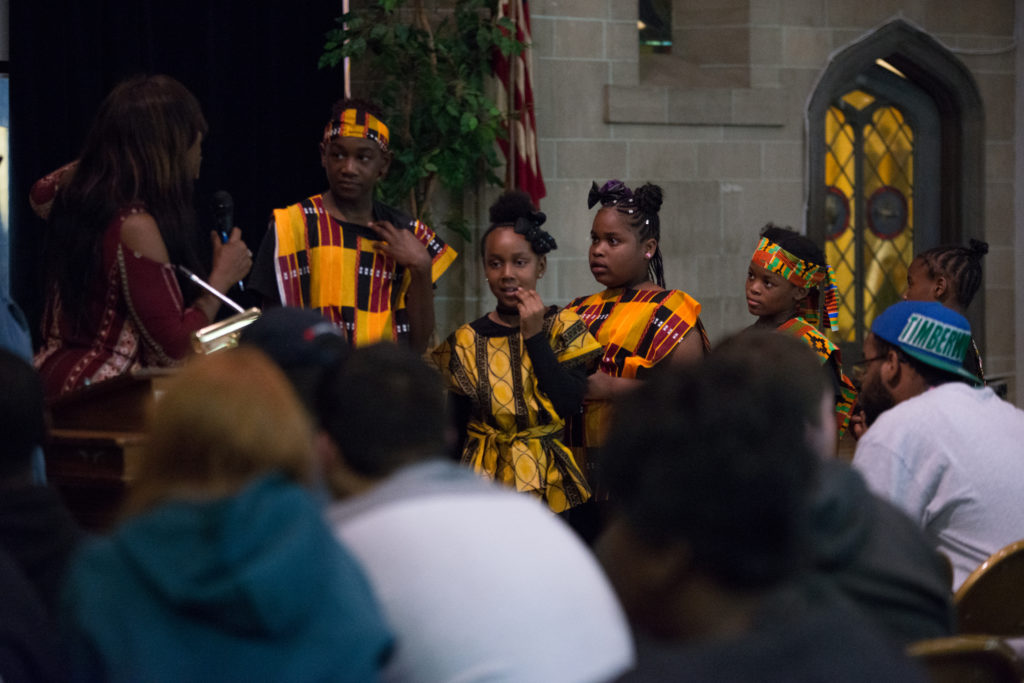PASCEP blazed trails in the continuing ed landscape of the city. And it’s still going strong
 September 24, 2019
Category: Featured, Purpose, Short
September 24, 2019
Category: Featured, Purpose, Short
For the past eight years, Malika Collins has been discovering her faith, learning how to publish a book and getting insight on how to manage her money — all in classes that cost her less than $50 a course.
Collins enrolls in PASCEP courses, community non-credit classes given through Temple University. For 40 years, PASCEP has provided low-cost continuing education classes for North Philadelphia residents and beyond.
“It gives you a wide variety of resources right in the community,” Collins said. “People can usually walk to class so they don’t have to worry about transportation. It’s also a way for professors to give back to the community.”
PASCEP, or Pan-African Studies Community Education Program, classes are taught by Temple professors and other volunteers. The topics offered range from certificate programs in grant writing and small business ownership to academic non-credit courses like American Sign Language and math to “of interest” classes like crocheting and yoga.
PASCEP is offering 55 courses this semester, said Director Ulicia Lawrence-Oladeinde. The base courses, she said, were chosen by late founder Annie D. Hyman, a Temple graduate who surveyed community members and created classes Temple-area residents said they wanted.
“As time goes on, things change. Classes also met the needs of advances in the decades,” Lawrence-Oladeinde said, noting new social media management and iPhone courses. “We are here, still alive and working for the community.”
Though PASCEP was the first of its kind in Philadelphia when it launched in 1975, the program has inspired other continuing education programs like The Learning Tree in Mt. Airy, Lawrence-Oladeinde said.
Collins, a Millersville graduate from North Philadelphia, takes PASCEP classes in order to expand her view of the world and gain new skills. She took “Discovering Your Faith” at PASCEP twice.
“It gave me strength and courage to keep moving forward after things like death that will come up in your lifetime,” she said.
Collins added that although she is a college graduate, she enjoys going to class with people of all education levels. “In class we can talk and learn from each other,” she said. “It’s a program that gives and receives for people across backgrounds.”
With the exception of certificate programs, PASCEP classes cost $50 or less and scholarships are available for students who engage in PASCEP’s job fairs and other events. PASCEP classes have no geographic limits for their students, so people from all areas are welcome.
Lawrence-Oladeinde said people should take advantage of PASCEP classes because they give people an accessible way to get ahead in their professions and personal lives.
“A lot of the time, professional trainings and conferences are not a part of our students’ circle,” she added. “After coming to PASCEP, they get introduced to those concepts and theories of professionalism. It allows people to learn the things they don’t know they needed to know.”
Project
Adult Education Month 2019Trending News










